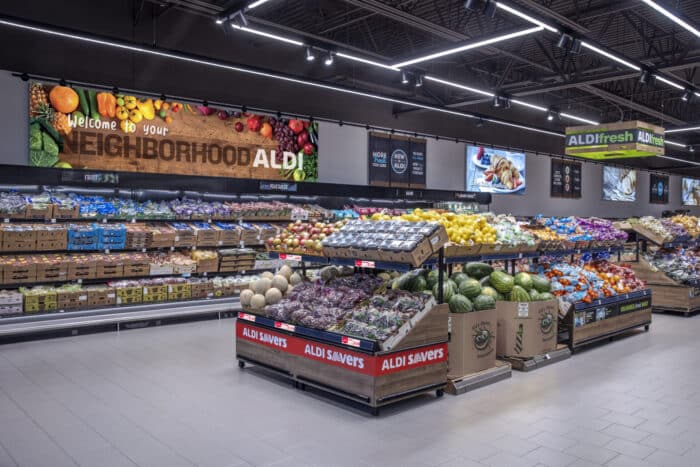Every January, shortly after New Year’s Day, millions of Americans wake up from the food coma of the winter holidays — Thanksgiving, Christmas Eve, Christmas, New Year’s Eve — and they decide that maybe now is a good time to improve their health. Sometimes those resolutions stick, and sometimes they don’t.
The why here matters. Most people want to have a long life expectancy, or lifespan, but also a long quality of life, or healthspan. An American’s current life expectancy sits at 76.4 years, with women at 79.3 years and men at 73.5 years. By contrast, the average American’s healthspan sits at just 63, meaning that it is around that time that many Americans start to see deep declines in health.
The biggest causes of declining healthspan — and, by extension, a shorter lifespan — are what one author calls the Four Horseman of Chronic Disease: 1) cardiovascular disease, including heart attack and stroke, 2) metabolic disease, including type 2 diabetes, 3) cancer, and 4) neurological disease, including dementia. Studies have repeatedly shown that things like regular exercise, sleep, warm relationships with others, and meaningful activity can help us live longer and happier. It goes without saying that a good diet is another big factor.
When it comes to improving health, longtime Aldi shoppers might immediately think about all the exercise gear Aldi rolls out in January, right as well-intentioned people are flooding the local gym. It is true that Aldi shows up big on this each New Year.
Another area Aldi can help? Nutrition.
Now, to be sure, let’s get this out of the way: if you want to eat badly, Aldi can offer you that. The grocer, like pretty much every grocer, stocks plenty of sugar, highly processed foods, and things that can clog your arteries.
But if you want to eat healthier … Aldi can do that, too. We think the grocer has made strides in this department over the years, evolving from a budget store with a lot of questionable processed foods to a supermarket that imitates some of the better healthy options on the market.
Ahead lie some examples.
1. Fresh Produce
Fiber is good for you. Repeated studies have made that clear, linking high fiber intake with lower cholesterol levels, lower weight, lower blood sugar, and a lower risk of cardiovascular disease and cancer.
Aldi’s produce section has divided shoppers, and not always unfairly. Some appreciate the low prices, while others have called into question the quality and lifespan of the fruits and veggies. Count us in both boats.
Now, the grocer says on its website that “To provide the freshest produce possible, ALDI teams up with top growers throughout the US, including local growers.” From personal experience, we don’t always see as much locally sourced produce as we’d like, even in-season. As a result, our Aldi produce has been hit-or-miss in the shelf life department. Sometimes our produce does well, and other times it seems to go bad faster than what we get from our regional grocer. We’ve interacted with other customers who have had similar experiences, to say nothing of anecdotes on social media.
That all said, Aldi produce can be good, and it’s also typically competitive in its pricing — just be aware that you may or may not be able to get just one of something, depending on the item, including onions, potatoes, lemons, limes, zucchini, or bell peppers.
The store carries a decent selection, regardless. Aldi stocks healthy fruits like apples, oranges, bananas, grapefruit, and strawberries. The supermarket also carries a selection of leafy greens, both prepackaged and unpackaged.
2. Whole Grains
Fiber, we’ve already established, is good for you. Whole grains, in addition to fruits and vegetables, are a great way to get fiber. Whole grains are different than refined grains in that the nutritious parts of the grain are preserved, including the fiber but also other key nutrients.
Aldi shelves plenty of whole grains. You can, for example, find rolled oats and steel cut oats. You can find a few varieties of quinoa, either as a standalone or as part of a larger (albeit more processed) meal. Other whole grains available in the store include corn and brown rice.
Popcorn is also a healthy whole grain when prepared in an air popper or on the stovetop. Unfortunately, Aldi only occasionally sells popcorn kernels.
Another good source of fiber comes by way of whole grain breads. Here Aldi sells some competitive options, including a take on Dave’s Killer Bread that has an excellent fiber content.
Finally, I have to mention cereal. Some cereals do better on this than others, so read the labels carefully. One standout of note: Aldi’s Crispy Oats, the store’s Cheerios imitation, which are made from whole grain oats, have zero grams of sugar and sport three grams of dietary fiber per serving.
3. Seafood
Not all seafood is created equal. Some fish, for instance, are better for you than others. That said, fish that are high in omega-3 fatty acids and other nutrients like Vitamin B12 can be part of a well-rounded diet. There’s a reason the Mediterranean diet, one of the most consistently validated diets out there, emphasizes omega-3 rich foods.
Some of Aldi’s seafood is regularly available, while other varieties are rotated in as limited-time specials. Even in the latter case, the rotation is frequent enough that you can often find something you want. Salmon, a highly touted fish, is an Aldi mainstay. So is tuna, another fish with health benefits.
4. White Meat
Red meat — beef and pork — is rich in protein and nutrients, but it also has some health drawbacks (although grass fed beef may be better). White meats like chicken and turkey, are often viewed as healthier alternatives. While there is some debate in the research, many studies have associated white meat over red meat when it comes to longevity.
Regardless, Aldi’s meat selection is a robust one. You can find plenty of red meats, including steaks, and even grass fed beef, and you can find plenty of white meats, including fresh chicken and turkey, and some organic chicken options. Aldi also sells plenty of processed white meats like chicken nuggets and breaded strips, although those trade off some of the health benefits for additional ingredients that add the likes of fat and sodium into the mix.
Closing Thoughts:
Grocers sell what shoppers will buy. Aldi, being a smaller store, is especially aware of its customers’ shopping habits. Some customers want junk food and easy-to-prepare processed foods, so Aldi sells those. Other customers want to eat healthy, so Aldi sells those options, too. Sometimes we’re all a mix of the two.
The good news is that, for the shopper trying to lower their cholesterol, tame their blood sugar, and otherwise improve their odds of a long lifespan and long healthspan, Aldi stocks a lot of good products that can help with that goal. From produce to whole grains, from healthy fish to healthier meats, if you want it, you can probably find it at Aldi.






Perhaps you know the answer to my question,,,/we’ll see~
I was pleased that I could purchase Gluten Free foods at Aldi’s for a
time; that is!
Less and less of these are now available, and a lot have been discontinued; at least so it seems! Why is this! I was able to get something half way flavorful compared to the other stores….now it’s less and less, each trip.